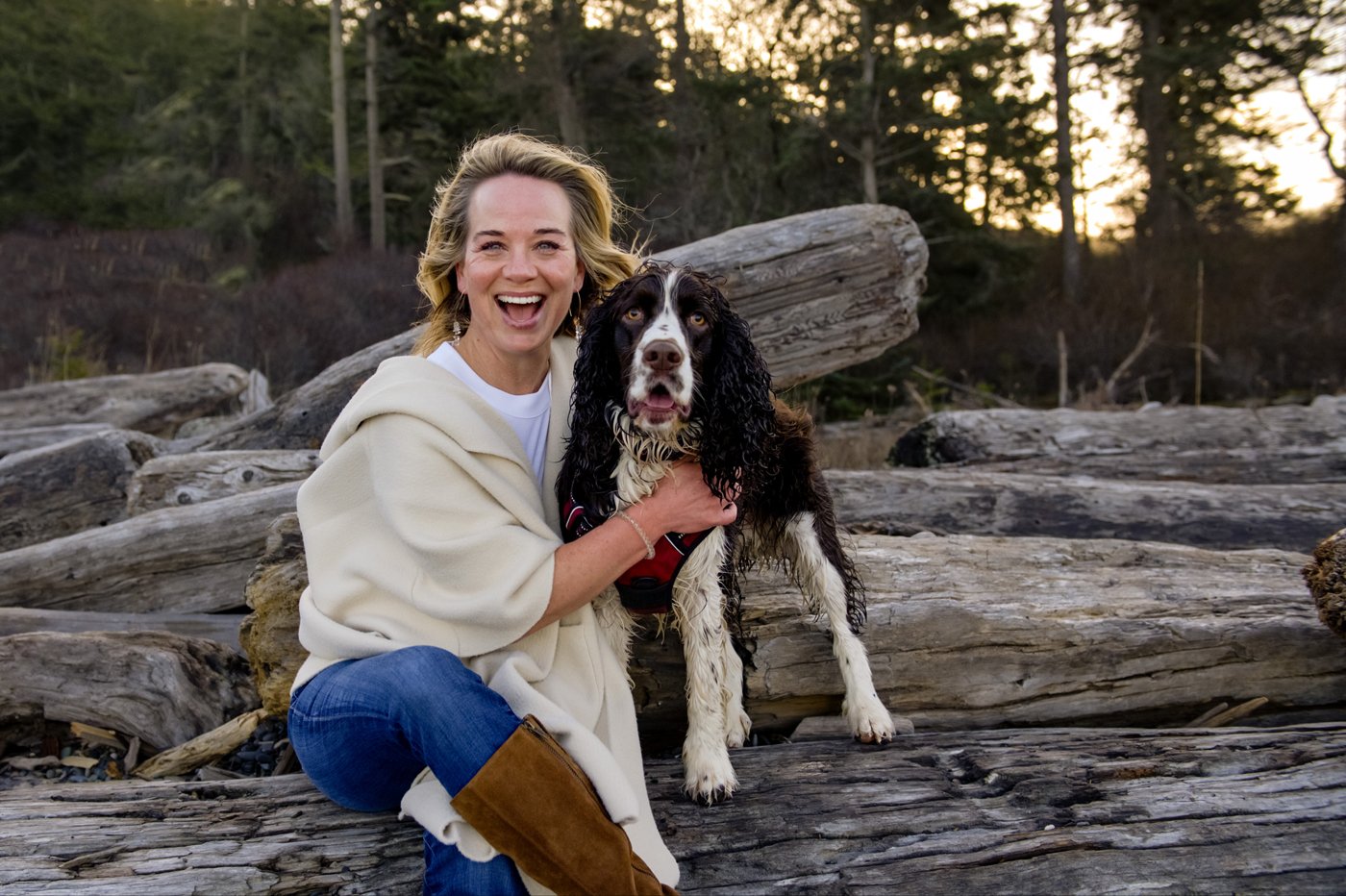How to love people without unloving yourself
In my space, I hear a lot of people-pleasing and a desire to stop doing it and not know how to do it.
Our country was founded on the Judeo – Christian belief system, and if you have been to church, my experience is that it focuses a lot on 'helping others,' don't be selfish, and concentrating on 'God's people,' not yourself. Now, this isn't an absolute but rather my experience of church/religion.
I like to say my husband, who raised me (15 years my senior) and I was just barely 17 when we met, was Catholic and believed sincerely that if you chose yourself over others, you were selfish. It was ingrained in my psyche from a young age and imprinted throughout my teens and adulthood.
It was the zeitgeist of many decades (primarily women) to take care of others and ignore your own needs. Many of our mothers were raised that the only way to be worthy and lovable is to stifle their needs and put others first.
People's pleasing stems from wanting to feel belonging and have safety in the relationship. Let's face it- we are all people pleasers to some extent and want to belong and feel safe.
People Pleasing has scanned our environments to see others' desires, needs, and emotions. They feel responsible for others' feelings and see it as a duty to solve their current problems, manage their emotions, and make them feel at ease.
This creates little to no connection to your needs and desires and has you from avoiding disagreements and conflict and voicing your needs because of fear of rejection. Ultimately, you may be resentful, struggle with low self-esteem, and lose connection to your sense of Self.
Let me tell you, growing up in a home that was primarily chaotic, mostly dysfunctional, mostly abusive, mostly unsafe, and mostly I longed for deep connection. I say mostly because there were times that were not abusive, chaotic, or dysfunctional.
I did not feel safe in my home and had very little protection – I deeply craved love and safety for being me, and the only way I knew how to find safety was to have people please me into my worth. This meant that on Sunday morning, I would ride my bicycle up to Winchell's donuts around 7 am and buy donuts for my stepmom. My stepmom was the 'live wire' in the family. She wasn't the alcoholic like my dad or the chaotic one; no, she was scarier than that. She was the one that withheld love and validation and depending on the wind blowing, her mood could shift from loving and nurturing to withholding and cruel.
So, if I bought the donuts, it assured me {in my tiny brain} that I would feel ok for that day. It taught me the art of manipulation. While that is never a great attribute to learn at a young age, it became a great survival mechanism to survive in my home.
As children develop, their brains "mirror" their parent's brains. In other words, the parent's growth and development, or lack thereof, impact the child's brain. As parents become more aware and emotionally healthy, their children reap the rewards and move toward health."
If our parents did not have the attunement, regulation, and safety in themselves, there is no way they can give that to us, and that is how we initially create our own safety, OR we find coping strategies:
People pleasing
No Boundaries
Defensive
Fawning
And the loss of Self.
Our parents didn't set out to create these patterns or lack of safety; it is that our parents had no idea, AND likely their parents didn't make the safety, attunement, and co-regulation that they needed. Hint Hint..{this is how generational patterns are created}
Most of us think we are being super loving and kind when people are pleasing, except they don't realize they are manipulating people for a time, validation, love, and safety.
Over-responsibility for others causes sickness, chronic illnesses, lack of authenticity, and a loss of Self.
If you don't know how to say NO, your body will likely say it for you due to disease or chronic autoimmune issues.
Our bodies emote our emotions through the body's illnesses/diseases. Meaning if we suppress ourselves, our bodies will express themselves.
This is not about blame or shame but rather a conversation that continues to be had in our current zeitgeist as we dive deeper into understanding our behaviors and the behaviors of others.
The truth is we teach people how to treat us, and we teach others how we will treat them. Saying NO is a complete sentence; you are not required to set yourself on fire for others' feelings, comfort, joy, love, and acceptance.
Yes, boundaries are needed, AND we have to look at what got us here to people pleasing in the first place.
What did I need?
What still needs to be validated that I need to validate?
Did I feel safe?
What kind of safety did I need?
Do the people I surround myself with have similar qualities to my family?
What do people pleasing give me? {likely there is a payoff, just like for me and the donuts, the fix was I believed I could control the outcome of my environment and how people would react or treat me}
Consider that adults can withstand disappointment, hurt, frustration, and anger. However, children internalize it, and so what does this say about us, who people please or you that people, please?
That is a fundamental question to answer because likely, underneath, there is a core belief that isn't true (I am unlovable, I can't trust others, I am unworthy), etc. However, it may need to be more accurate, but it runs the show.
Healing from this is challenging, and it requires practice. Our lives are complicated, messy, and beautiful; it takes what it takes to create how we want to live and feel.
Part of the healing includes grieving for that younger Self who wasn't taught they were loveable just as you are, needs, feelings, and all.
The part is looking at creating boundaries for yourself. Boundaries are for the US. They do not require anything from anyone other than you to know, honor, and express them.
Decide where your line of resentment starts, meaning feel into the place when you begin to feel overwhelmed or irritated, or your body starts signaling attention, which may be where your resentment line starts.
Resentments still need to be met. So if you expect that something will be this way/or that way, and it isn't likely, you are setting yourself up for resentment.
We set ourselves up for Self–sabotage and hurt.
The idea is to get clear on what you need, what you want, and how it will feel to your body.


